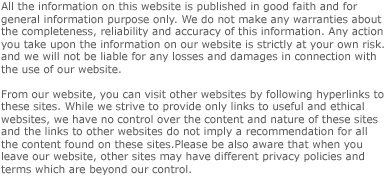
Let's talk: You'd like to know who is responsible for watching over health care in your state.
Who makes inspections, issues licenses, and checks quality? What if you have a complaint?topics: regulations | Nursing homes | inspections | Assisted Living | Home Health care | Adult Day Care
We'll take a look at how it works in general. After that, you can look up the agency or bureau that is responsible in your state.
There is usually one office of the state government that controls the licenses and enforces the rules for all kinds of health care facilities; including hospitals, clinics, and just about everything medical you can think of. In most states, it's a bureau or division that is part of the state health department.
I know you are on this page because you're looking for answers about nursing homes, assisted living or other senior care places. So here are some brief notes on just those:
Nursing Homes & Assisted Living Programs
With Nursing Homes, Assisted Living Programs, Hospice Facilities, and Adult Day Care, your state bureau issues licenses; generally when a facility meets the standards that are required by law. Once a facility is open and operating, the bureau must make sure that everything keeps up to standards. A big part of this is accomplished by holding inspections. Inspections are often surprise visits... the facility doesn't know they are coming in advance. This is called "regulation enforcement".
Since these are facilities with actual buildings, they also make sure buildings and equipment meet safety standards, although the local Fire Inspectors might do this also.
Home Health Agencies
Home Health Agencies and other outside services like Hospice Care Programs obviously don't have buildings that need inspecting, since they perform their work in outside locations like homes. But they do still need licenses, and they are subject to regulation enforcement.
A service or facility might take people who will pay for care through the Medicare or Medicaid programs. If that's the case, then the facility needs to qualify for another set of regulations which are set by the federal Centers for Medicare and Medicaid. The federal government usually arranges with the local state bureau to watch over enforcement of these regulations, too.
Your state bureau is also charged with helping facility supervisors and employees learn about new regulations, and sometimes, new methods of care. They do this with an education program.
Complaints and Questions
Who should you contact if you don't think your loved one is being treated properly? Since your state health bureau is responsible for regulation enforcement, it is the logical place to receive complaints. (There are some exceptions to this rule, but we cover those in our individual state links below.)
But don't jump right to a formal complaint. Before you do, try talking with the facility manager. Every nursing home, assisted living residence and home health agency has a director or administrator whose job is the day to day operation of the facility. There's a good chance your situation will be immediately corrected by talking with the person in charge. Even after filing a complaint, it's a good idea to still talk with the head people to see if they can fix things.
If you decide a formal complaint is in order, your state office will almost always have a complaint telephone hotline. And in many states, you will find a website link that allows you file on line.
This page is about who ho is responsible for watching over health care in your state
|
|

In honor of Dad


